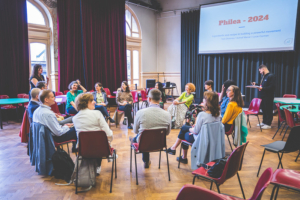Could there be good news for meeting the Mighty Malabo Goals?
Latest posts
Share:
The third Biennial Review Report of the African Union on the Implementation of the Malabo Declaration on Accelerated Agricultural Growth and Transformation for Shared Prosperity and Improved Livelihoods is coming. And it could be encouraging.
The report on agricultural transformation will land for public consumption after the African Union Summit on 5th/6th February 2022. It will convey a complex but fundamental picture of progress among nations in the fight against hunger and raising living standards across the continent. It’s a report we can all understand and make use of.
Does it really matter to me?
All too often in Africa, those working in government, regional economic communities, the international development sector and partners, work in silos. Heads are down and focused on delivering on their individual day-to-day but that doesn’t always satisfy the soul.
We all too rarely lift our heads to see the bigger picture from all the hard work that’s gone in. There’s always lots of talk about action, but the proof of the pudding is always in the eating… not the cooking.
The ‘Biennial Review’, as it is known in familiar circles, will show progress at a continental scale and in each country. It is based on the latest data from each nation.
The authoritative report gives insight into powerful trends and is provided by governments for governments to take action through mutual accountability.
Sounds amazing, doesn’t it? Yes, perhaps too good to be true.
How influential will it be?
The nations of Africa and their regional economic communities are coalescing behind the analysis of impact providing the most authoritative view that exists on ending hunger, reducing poverty, improving nutrition, enhancing social protection, and sustaining good land management.
It measures progress in almost 50 areas from circa 50 countries. These issues are often looked at separately, yet we know they must be intertwined to raise prosperity and resilience in the long run.
The report has been approved by a Committee of Ministers as it makes its way for review and adoption by Heads of State and Governments at the African Union Summit in early February.
In the past, Africa and the world have taken only mild notice. This is a travesty given all the work put into compiling it, and what it could mean for us all if used well.
Because it embodies a powder keg of evidence on what is and what isn’t working in Africa – we seek an explosion of its use in national and regional settings. Parliamentarians, NGOs, farmer organisations, farmers, and citizens are essential to encourage this to happen.
Progress relies on multiple actors sharing their learning on what seems to be working and coordinating in favour of a collective evidence-based approach, all anchored by governments while letting the private sector do what it does best.
Should we be excited?
Is this Biennial Review report news? I think it is. Journalists will be briefed at a civil society event on 2nd February.
The report and its findings are embargoed and will be available after 6th February along with some snazzy new communications tools. But there are whispers that it might bring some good news about progress in at least some nations against the mighty goals established in Malabo in 2014, which include wiping hunger off the map of Africa by 2025.
If true, this would be the good news needed to give the recovery from Covid-19 a spring in its step.
Fancy getting involved?
Stay tuned as we learn more. Please get in touch with Ruthpearl Ng’ang’a if you’d like to get involved in making sure this wonderful data and reporting system spreads its wings and strengthens the hands of governments, parliaments, development partners, and civil society to press for the policies and actions that can secure greater progress in future.
Let’s lift our heads and connect with this ‘bigger picture’ to see where we are now and where we are going before we double down on our day-to-day tasks. It is, after all, good for the soul.










